Tallinn, 27 March 2025 – The City of Tallinn has officially submitted its application to become a Zero Waste Candidate City with the Mission Zero Academy (MiZA) Certification. This is a landmark step for both MiZA and the environmental network Zero Waste Europe, which powers MiZA, given that Tallinn is the first European capital to join the Certification.
Kaisa Karjalainen, Director of the Mission Zero Academy, states:
“At MiZA, we’re particularly inspired by Tallinn’s leadership as a capital city, which sends a resounding message across Europe that zero waste transitions are both feasible and necessary at significant urban scales.”
With the Certification, the city is gaining a powerful framework to turn ambition into action. The process will help Tallinn sharpen its strategy, engage its residents, and accelerate the shift to local reuse, repair, and recycling systems. It’s an approach that Mayor of Tallinn, Jevgeni Ossinovski, fully supports, stating: “Cities can spearhead change where national governments are too slow to act. We want natural resources and our living environment to be treated with the same respect as we treat our fellow citizens. The City of Tallinn aims to be as smart and innovative as its people: to invest, not waste; to protect, not pollute. That is what becoming a Zero Waste City means.
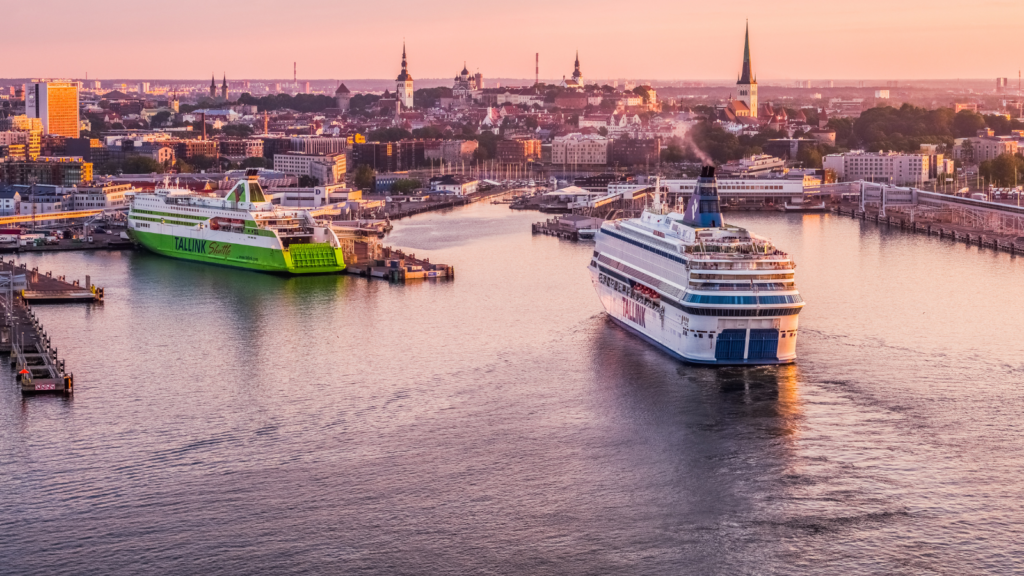

MiZA and Zero Waste Europe will work together to help Tallinn reach the ambitious goals it has now set. The city aims to: increase municipal waste separation collection to 66% by 2026 and 70% by 2030; raise the recycling rate to at least 65% by 2035; reduce landfill disposal to below 5% by 2026; phase out incineration of unsorted waste; set a municipal waste reduction goal by March 2026; and invest in education and public awareness to boost citizen participation.
Tallinn has already laid strong groundwork via the city’s Waste Management Plan 2022 – 2026 and the Tallinn 2035 Development Strategy 2035. Tallinn was also the first European city to implement the EU’s Single-Use Plastics Directive with a clear prioritisation of reusable containers at public events. In 2023, Tallinn generated just 362kg of municipal waste per capita, well below the EU average of 511kg, according to Statista. The city also opened its first circularity centre in October 2024, with a second under construction – set to open by the end of 2025. On top of this, Tallinn plans to convert all waste stations across the city into similar hubs for circularity.
But the city still has far to go, as pointed out by Liina Kanarbik, Leading Specialist from the Circular Economy Department in Tallinn’s Strategic Management Office. “Despite having lots to be proud of, we are also a city that is still failing to meet the EU recycling targets like so many others. I hope joining MiZA’s Zero Waste Certification gives us the push to achieve these goals.”
From a national perspective, this step reinforces years of local work. Marianne Sepp, CEO of Zero Waste Estonia SA, noted, “The journey of Estonia’s first Zero Waste City is something that Zero Waste Estonia has been working towards for years. Tallinn is already a leader in sustainability, and we hope their example will inspire other Estonian communities to commit to ambitious goals, actively engage in waste reduction and the promotion of a circular economy.”
Jack McQuibban, Head of Local Zero Waste Implementation at Zero Waste Europe, states:
“It’s extremely exciting to mark the first Estonian Zero Waste Candidate City and the first capital city with MiZA’s Certification. Despite wider contextual challenges in today’s world, this shows that there are still many pioneering cities, like Tallinn, who recognise the need for change and are willing to work with their community to make it happen.”
Tallinn’s commitment serves as a clear signal to cities across Europe that the transition to zero waste is both good for the environment but also a politically sensible policy, even at the scale of a capital city, when done in partnership with the local community.
ENDS
Notes to the editor
- City official website: www.tallinn.ee
- Tallinn’s Waste Management Plan 2022 – 2026: https://www.riigiteataja.ee/akt/417052022007
- Tallinn 2035 Development Strategy 2035: https://www.tallinn.ee/en/media/313030
- The Zero Waste Certification is made up of 5 steps: (i) the expression of interest in being Zero Waste by the municipality, (ii) the commitment to be Zero Waste, (iii) the implementation of this system, (iv) its certification and (v) the performance of annual improvements. The overcoming of each of these steps is given with the support and advice of expert entities in the fields of waste and resource management. The evaluation for certification is developed around a scoring system, which includes mandatory criteria and optional scoring criteria.
- Scoring criteria are scored based on the ambition and impact of each implemented policy. The sum of the points defines the level of certification of the municipality and its subsequent number of ‘stars’.
- Subsequent to Certification, municipalities must monitor their activity and make annual improvements to enhance the results achieved. Every 3 years they are subject to new audits.
Press contacts
Sean Flynn, Media Outreach & Communications Officer at Zero Waste Europe, sean@zerowasteeurope.eu or news@zerowasteeurope.eu / +32 471 96 55 93

